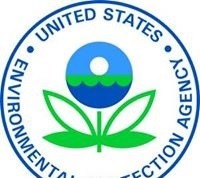Notice of Intent Filed to Sue Over Chronic Water Pollution From Colorado Slaughterhouses
DENVER, Colo. – (RealEstateRama) — The Center for Biological Diversity and Food & Water Watch today filed a notice of intent to sue JBS USA and the Swift Beef Company for illegally dumping slaughterhouse pollution into Colorado waterways, putting people and wildlife in danger and violating the Clean Water Act.
The Lone Tree Wastewater Treatment Plant processes up to 4 million gallons of wastewater each year from two slaughterhouses located along the Front Range at the confluence of the South Platte and Cache la Poudre Rivers. For years it has been illegally discharging dangerous wastes, including ammonia nitrogen and suspended solids, into a tributary of the South Platte River, threatening Colorado citizens as well as the survival of an endangered fish called the pallid sturgeon.
“It’s disgusting that JBS has been allowed for years to treat Colorado’s waterways as a sewer for dangerous meatpacking waste,” said Hannah Connor, a senior attorney at the Center for Biological Diversity. “The company needs to clean up its filthy act, both to protect public health and save endangered wildlife.”
Today’s notice follows chronic violations of Lone Tree’s Clean Water Act permit. The facility, maintained by JBS USA and the Swift Beef Company in the city of Greeley, processes animal fat, meat, pathogens, ammonia and excrement. Its violations include failing to meet toxicity testing standards for discharged waste, unpermitted discharges of total suspended solids and ammonia nitrogen and failing to report violations.
“JBS is among the biggest companies controlling the vast majority of meat consumed in the United States. The consolidated nature of the meat industry means fewer facilities creating more and more toxic waste,” said Tarah Heinzen, staff attorney at Food & Water Watch. “It’s up to this powerful and extremely profitable company — not Colorado residents — to clean up its own mess.”
The South Platte River is a vital freshwater resource that originates in the Rocky Mountains and flows through Denver and across northeastern Colorado before entering Nebraska and eventually joining the Missouri River.
The broad, shallow waters of the lower Platte River are downstream from the plant. As it meanders through eastern Colorado and into Nebraska, the river provides important habitat for endangered pallid sturgeon.
The river is also within the migratory path known as the North American Central Flyway. It provides essential habitat for birds, including the endangered whooping crane, northern Great Plains population of the piping plover and interior least term.
“As government agencies increasingly fail to step in and enforce the law, citizens and communities are mobilizing to hold polluters like JBS and Swift Beef accountable in the courts,” said Neil Levine, environmental enforcement project staff attorney at Public Justice and counsel for the plaintiffs. “From failing to comply with environmental permits to being the epicenter for massive beef recalls due to E. coli and salmonella contamination, these companies have imperiled their neighbors and their customers for far too long. When regulators refuse to act, the courts have a critical role to play in enforcing the law and protecting public health and safety.”
Background
JBS USA is a leading processor of beef and pork in the United States and a majority shareholder of Pilgrim’s Pride Corporation, the second largest U.S. poultry company. The Swift Beef Company is a wholly owned subsidiary of JBS USA.
According to a recent report, approximately three quarters of large U.S. meat-processing plants that discharge their wastewater directly into streams and rivers were found to be violating their already lax Clean Water Act permit requirements, with some dumping as much nitrogen pollution as small cities and facing little or no enforcement.
JBS owns the fourth highest number of plants determined in that report to be in violation of their Clean Water Act Permits. Pilgrim’s Pride, also owned by JBS, was found to have the second most plants with violations.
In a separate report, JBS facilities, including Pilgrim’s Pride slaughter operations, were found to have dumped more than 37.6 million pounds of pollution into waterways between 2010 and 2014.
Wastewater from meat and poultry processing facilities contains high concentrations of pollutants such as total suspended solids, oil and grease, pathogens, nutrients such as nitrogen (including ammonia) and phosphorus, and metals such as copper and zinc. Discharging these pollutants into streams can lead to fish kills and other harm to aquatic species.
Nutrient pollution can also lead to toxic algal blooms that can hurt wildlife and humans. Habitat degradation can also result from increased suspended solids, which block sunlight and may damage spawning grounds and feeding habitats.
The Clean Water Act prohibits the discharge of any pollutant, including industrial, municipal and agricultural wastes, from any point source into waters unless allowed by permit. Permit violations are enforceable under the Act’s citizen suit provision.
Today’s letter gives JBS USA and the Swift Beef Company 60 days to resolve the violations noticed by the Center for Biological Diversity and Food & Water Watch. The organizations are represented in this action by counsel with the nonprofit legal advocacy organization Public Justice, as well as in-house counsel.
The Center for Biological Diversity is a national, nonprofit conservation organization with more than 1.4 million members and online activists dedicated to the protection of endangered species and wild places.
Food & Water Watch is a national, nonprofit organization with more than one million members and supporters. FWW champions healthy food and clean water for all, stands up to corporations that put profits before people, and advocates for a democracy that improves people’s lives and protects our environment.
Public Justice pursues high impact lawsuits to combat social and economic injustice, protect the Earth’s sustainability, and challenge predatory corporate conduct and government abuses.
Contacts:
Hannah Connor, Center for Biological Diversity, (202) 681-1676, hconnor (at) biologicaldiversity (dot) org
Darcey Rakestraw, Food & Water Watch, (202) 683-2467, drakestraw (at) fwwatch (dot) org
Steve Ralls, Public Justice, (202) 861-5246, sralls (at) publicjustice (dot) net




